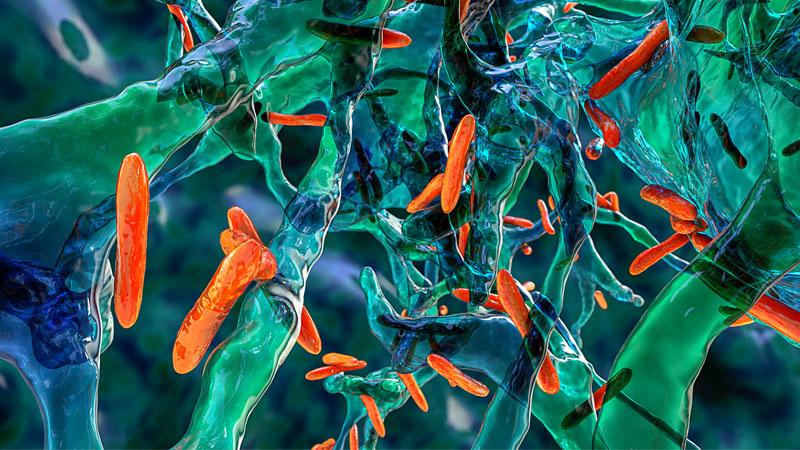Researchers from the University of Westminster have published a new paper looking at the drug tolerance of the bacterium that causes tuberculosis, known as mycobacterium tuberculosis.

Understanding the mechanisms underlying the adaptive strategies of mycobacterium tuberculosis to achieve drug tolerance is critical for the identification of new therapeutic targets and for the development of new drugs to treat tuberculosis.
The study specifically looks at the role of fatty acid metabolism in drug tolerance of mycobacterium tuberculosis.
Fatty acids are one of the carbon sources available to mycobacterium tuberculosis, a causative agent to tuberculosis, within the host environments. The researchers found that mycobacterium tuberculosis cultured in a solution containing fatty acids formed drug tolerant populations at much greater levels than when cultured in a solution containing carbohydrate carbons. The study provides the mechanistic bases underlying carbon source induced mycobacterium tuberculosis drug tolerance, thereby proposing a conceptually novel therapeutic intervention by targeting Mycobacterium tuberculosis adaptive strategies used to consume host carbon sources.
This study is a result of collaboration between the University of Westminster (UK) and University of Southern California, Los Angeles, California (USA).
Talking about the research, Dr Saki Raheem, Senior Lecturer in Biological Chemistry and Biochemistry, and Co-Author said: “Mycobacterium tuberculosis is an intracellular pathogen, which is capable of growing and reproducing inside a host cell which results in clinical symptoms. It can also persist in a clinically latent state for decades, if not the lifetime of the patient.”
“Sustained transmission of this pathogen is responsible for well over 1.5 million deaths each year. The central carbon metabolism of microbes that transforms carbon into energy via various pathways is essential for the normal development and function of bacteria such as mycobacterium tuberculosis which can switch carbon sources in order to survive in the specific niches in which they reside. This study of carbon metabolism thus represents a possible window into its potential to produce disease and the survival hazards encountered in its ecological and nutritional niches, as well as potentially serving as a guide to new treatments.”
Read the full study in the mBio journal.


